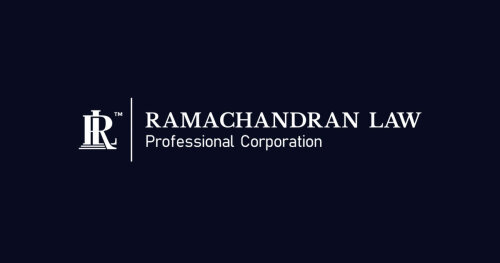Best Nonprofit & Charitable Organizations Lawyers in Canada
Share your needs with us, get contacted by law firms.
Free. Takes 2 min.
Or refine your search by selecting a city:
List of the best lawyers in Canada
About Nonprofit & Charitable Organizations Law in Canada
In Canada, nonprofit and charitable organizations play a critical role in communities by providing a wide array of services, support, and advocacy. These organizations are typically established to serve public benefits rather than individual gains, and can include entities such as charitable foundations, social service agencies, educational institutions, and more. The legal framework governing these organizations ensures that they operate responsibly, maintain fiscal integrity, and focus on their stated charitable purposes. Canadian law distinguishes between nonprofits and charities; charitable organizations are a type of nonprofit with specific mandates defined by the Canada Revenue Agency (CRA) enabling them to issue tax receipts for donations.
Why You May Need a Lawyer
Engaging a lawyer when dealing with nonprofit and charitable organizations can be crucial for navigating complex regulatory environments, ensuring compliance, and avoiding potential legal issues. Common situations where legal assistance might be necessary include:
- Setting up a nonprofit or charitable organization and drafting foundational documents.
- Ensuring compliance with federal and provincial laws and regulations.
- Managing governance and board responsibilities effectively.
- Handling tax issues, including applications for charitable status with the CRA.
- Drafting contracts, managing liability, and navigating employment laws.
- Resolving disputes, whether internal or external.
- Amendments to bylaws or articles of incorporation.
Local Laws Overview
Nonprofit and charitable organizations in Canada are subject to a diverse framework of laws and regulations, which can vary depending on the province or territory. Key aspects include:
- Legal Structure: Nonprofits and charities can be incorporated federally under the Canada Not-for-profit Corporations Act or provincially under respective provincial laws.
- Tax Exemption: Charitable organizations must register with the CRA to benefit from tax exemptions and the ability to issue donation receipts.
- Governance Requirements: Boards of directors are subject to specific requirements involving fiduciary duties and adherence to organizational bylaws.
- Reporting Obligations: Charities must file annual information returns with the CRA and adhere to financial disclosure transparency.
- Employment Laws: Nonprofits must comply with employment standards, human rights codes, and, where applicable, collective bargaining agreements.
- Fundraising Regulations: Charitable solicitations are regulated, and organizations must follow the guidelines to maintain credibility and compliance.
Frequently Asked Questions
1. What is the difference between a nonprofit and a charity in Canada?
A nonprofit is a broad category of organizations that operate without a profit motive, whereas a charity is a nonprofit with specific registration under the CRA that enables it to issue tax receipts for donations.
2. How can we obtain charitable status in Canada?
Organizations seeking charitable status must apply to the CRA by demonstrating their exclusive focus on recognized charitable purposes such as relief of poverty, advancement of education, or other purposes beneficial to the community.
3. What are the reporting requirements for a registered charity?
Registered charities must file an annual information return (T3010) with the CRA and maintain adequate accounting records to demonstrate compliance with applicable laws.
4. Can a nonprofit distribute profits to its directors or members?
No, nonprofits generally cannot distribute profits to members, directors, or officers. Any surpluses must be reinvested into the organization’s mission and activities.
5. Do we need a lawyer to incorporate a nonprofit?
While it is possible to incorporate a nonprofit without legal assistance, consulting a lawyer can help ensure that the organization is properly structured and compliant with applicable laws.
6. What are the responsibilities of nonprofit board members?
Board members have fiduciary duties to act in the best interests of the organization, including duties of care, loyalty, and obedience to the organization's mission.
7. How are nonprofit organizations funded?
Nonprofits can be funded through a variety of sources including donations, grants, membership dues, and fundraising events. Charitable organizations may also receive government funding.
8. Can a charity engage in political activities?
Charities can engage in limited political activities provided these are non-partisan and further their charitable purposes. Legislative and regulatory boundaries must be respected.
9. What is the procedure for merging two nonprofits?
The merger of two nonprofits involves legal and logistical steps, including agreement on terms, due diligence, and potentially drafting new incorporation documents and bylaws, often requiring legal assistance.
10. How can we ensure compliance with fundraising laws?
Organizations should familiarize themselves with provincial fundraising laws, establish transparent financial practices, and ensure that all fundraising activities clearly support their charitable purposes.
Additional Resources
Here are some resources that may be helpful for those seeking information or assistance regarding nonprofits and charities in Canada:
- Canada Revenue Agency (CRA): Provides comprehensive guides for charities and nonprofits.
- Imagine Canada: Offers a range of services and supports for Canadian charities.
- Provincial nonprofit networks and associations: These provide localized support and resources.
- Legal clinics and pro bono services: Many offer specific advice for nonprofit organizations.
- Industry-specific law firms: Specialize in nonprofit law and can provide tailored advice.
Next Steps
If you need legal assistance in relation to nonprofit and charitable organizations, consider the following steps:
- Identify Your Needs: Assess what type of legal assistance you require, be it incorporation, compliance, or dispute resolution.
- Consult Experts: Consider reaching out to lawyers specializing in nonprofit law. Use resources like the Law Society of Ontario's lawyer directory for referrals.
- Prepare Documentation: Gather all relevant documents such as bylaws, financial statements, and past correspondence related to your organizational needs.
- Schedule a Consultation: Discuss your situation with a lawyer to outline a strategy and understand the potential legal and financial implications.
Securing appropriate legal advice can be invaluable to ensuring your organization's compliance and success.
Lawzana helps you find the best lawyers and law firms in Canada through a curated and pre-screened list of qualified legal professionals. Our platform offers rankings and detailed profiles of attorneys and law firms, allowing you to compare based on practice areas, including Nonprofit & Charitable Organizations, experience, and client feedback.
Each profile includes a description of the firm's areas of practice, client reviews, team members and partners, year of establishment, spoken languages, office locations, contact information, social media presence, and any published articles or resources. Most firms on our platform speak English and are experienced in both local and international legal matters.
Get a quote from top-rated law firms in Canada — quickly, securely, and without unnecessary hassle.
Disclaimer:
The information provided on this page is for general informational purposes only and does not constitute legal advice. While we strive to ensure the accuracy and relevance of the content, legal information may change over time, and interpretations of the law can vary. You should always consult with a qualified legal professional for advice specific to your situation.
We disclaim all liability for actions taken or not taken based on the content of this page. If you believe any information is incorrect or outdated, please contact us, and we will review and update it where appropriate.
Browse nonprofit & charitable organizations law firms by city in Canada
Refine your search by selecting a city.














